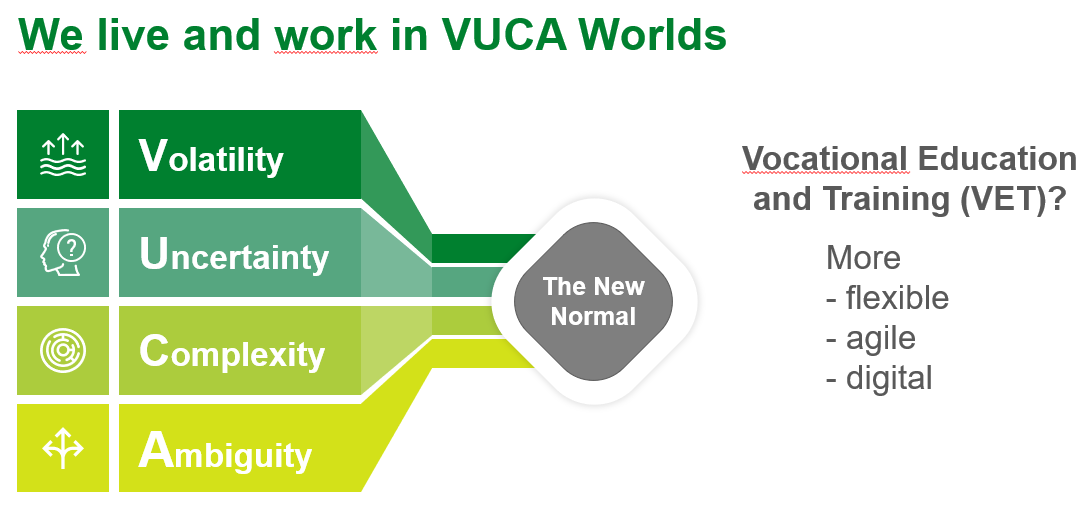The experience was impressive – in September I was able to give an impulse lecture at the informal meeting of the 28 European education ministers: “The future of vocational training – paradigm shift in vocational education: more flexible – more agile – more digital?” Here is a link to one side of the EU to this ministerial meeting.
What did I contribute to this meeting?

The “digital” has been nice so far, so far only a few teachers have fallen in love with the subject. With Corona a change in thinking is produced – what does that mean? It’s not about “online”, the digital future is rather smart. The changes are much more elementary – how we organize learning today suited the industrial revolution, according to a standard model, standard students – “one size fits all”. That no longer fits in with the new working worlds – here advanced digitization, especially artificial intelligence, can support new forms of organization. What could that look like in 10 years?
Highly personalized – similar to personalized medicine, tailored to the needs of the learner. Learners learn with smart machines, teachers also work hand in hand with smart machines, and content comes from computer colleagues. Teachers accompany learning processes and can concentrate on the complementary aspects of people, social and personal skills, and support them in developing the potential of young people and learners
We are not at the end of digitization, we are only at the beginning of a new era, the cognitive era of artificial intelligence. This requires framework conditions for the development of ecosystems – digital ecosystems, national platforms for a digitally protected educational space
The VUCA worlds are there – more flexible, agile and digital or smarter – there is no getting around them. Vocational training is the first to be affected. Innovation dialogues for vocational training are meaningful and necessary, regionally, nationally – and at European level. The spirit in the EU was very noticeable at the conference.
The europ. In the upcoming Osnabrück Declaration, education ministers would like to focus on four main areas for the year 2020 to 2025:
1. Resilience through innovative and flexible vocational training
2. Establishing a culture of lifelong learning – the importance of vocational training and digitization
3. Sustainability – a green link in vocational training
4. European education area: initial and continuing education and international vocational training
Anja Karliczek, German Federal Minister for Education and Research (left), Nicolas Schmit, EU Commissioner for Employment (center) and Prof. Dr. Sabine Seufert, HSG (right)






© BMBF / Hans-Joachim Rickel
<!–
–>
–

